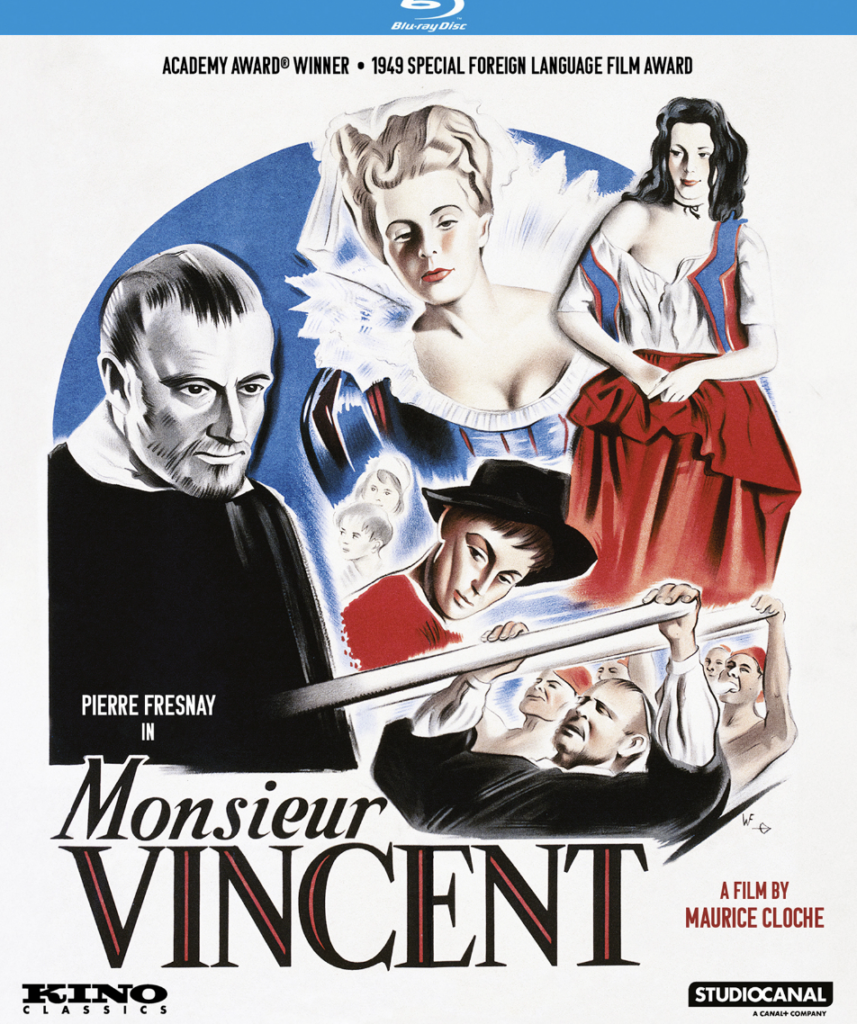Rescued From Relative Obscurity, the Gritty and Sometimes Grimy ‘Monsieur Vincent’ Is Remarkable for Many Reasons
Director Maurice Cloche’s film is as dour and complicated as its hero. It’s beautiful to look at and the production design is top notch, even when it underlines the rubble of human lives.

Here’s a trivia question: What film received kudos from both the Academy of Motion Picture Arts and Sciences and the Holy See? Scratch your head, but even the most ardent movie buff is likely to draw a blank. The answer? Director Maurice Cloche’s “Monsieur Vincent” (1947), a picture that was conferred an honorary Oscar for cinematic merit; the Best Foreign Language Film category wasn’t official until eight years later.
As for the other conferer: In 1995, Vatican City released an alcuni film importanti — that is to say, a list of “some important films.” Done in honor of the 100th anniversary of the art form, the Pontifical Council for Social Communications pointed to movies that, in one way or another, met with its critical standards.
Divided into three categories — religion, values, and art — the council came up with a list of 45 films that was, forgive me, catholic in its purview. Along with “Nosferatu” (1922), “The Lavender Hill Mob” (1951), and “Gandhi” (1982), there lies “Monsieur Vincent.”
Were Kino Lorber not releasing a Blu-ray of the picture, would a casual cineaste ever have come across it? “Monsieur Vincent” was new to me, as was Cloche, who is, I gather, emblematic of cinéma de papa. That is not a commendation.

This derisive term was coined by a critic and filmmaker, Francois Truffaut. Writing in the early 1950s, Truffaut took aim at pictures created not by auteurs, but by studio bosses. This appellation wasn’t an entirely objective criteria: Cinéma de papa was the primary bulwark against which Truffaut and his French New Wave compadres propped up their own cinematic efforts.
Did Truffaut ever revisit pictures from the bad old days of the French studio system when he became a seasoned filmmaker — that is to say, when his pictures became a new generation’s cinéma de papa? Retrospect is a funny thing: It can sharpen perception as well as temper taste.
At this date, “Monsieur Vincent” is remarkable for many reasons, not least its astringency. Cloche’s picture is pitiless in tone and ruthless in its particulars. If Vittorio De Sica’s “Shoeshine” (1947) counts as Neorealismo circa the mid-20th century, the same has to be true for “Monsieur Vincent,” albeit in the 17th century. It’s a gritty and sometimes grimy film.
The opening disconcerts. A horse-drawn carriage shuttles through a field of grass to deposit a lone passenger in the middle of nowhere. The driver tells the man that the township of Châtillon is nearby, and then unceremoniously rushes to the next destination. The traveler wears dark vestments, carries a modest sack, and strides with purpose, ultimately entering a small city. The camera inches across the weathered facades of the buildings and crumbling cobblestone streets. There’s not a person to be seen.
Our protagonist knocks on a passing doorfront and is greeted by a stone hurled from a window across the way. Doors are slammed; more stones are thrown. The man enters a vandalized church and is met by wandering farm animals and an old deaf woman. He inquires after a certain Monsieur Besnier, to which the woman replies: “They’re all cursed!”
Welcome to the year 1617. A plague is in full swing. It’s every man for himself and, as we learn in quick order, every social class for itself as well.
The new priest of Châtillon is Vincent de Paul (Pierre Fresnay). Trundling along to an expansive villa, Vincent announces that he has come to see his benefactor, Besnier (Robert Murzeau). There’s a party afoot: Elaborately raimented aristocrats are dancing, drinking, and otherwise cavorting. Vincent causes a stir by announcing to Besnier that he would prefer ministering to the sick to indulging in his host’s whims. The attendees, to a person, are taken aback.
So begin the travels of a former slave turned advocate for the poor and dispossessed. “Monsieur Vincent” is episodic in structure, doling out the trials and tribulations of one man’s pursuit of doing good. As played by Fresnay, Vincent is flinty and ruthless, obstreperous to a fault and frustrated with his charges — whether they be those in his care suffering from dementia or the authorities to whom he has to kowtow. As we watch Vincent age throughout the run of the film, the lone constant is his disappointment: in just about everything, but mostly himself.
Vincent’s unswerving initiative convinces the good women of the region, particularly Queen Anne of Austria (Germaine Dermoz), to help in his charitable efforts — but even the ladies have their limits. In one of the movie’s most corroscating scenes, a tribunal of women is presented with a baby abandoned at their doorstep. To a person, they refuse to touch or care for a child born of sin. Vincent is apoplectic, but, then, what was he expecting? He has no illusions left to spare.
“Monsieur Vincent” is a film as dour and complicated as its hero. It’s beautiful to look at — in that regard, cinematographer Claude Renoir held up the family trust— and the production design is top notch, even when it underlines the rubble of human lives. France Cloche and scriptwriters Jean Anouilh and Jean Bernard-Luc make no bones about the compromises required of charitable enterprises, nor the cynicism that can arise from such transactions.
Is this more than “some important film”? Absolument, though it’s likely to take additional viewings to truly fathom its dolor.

